Baleful
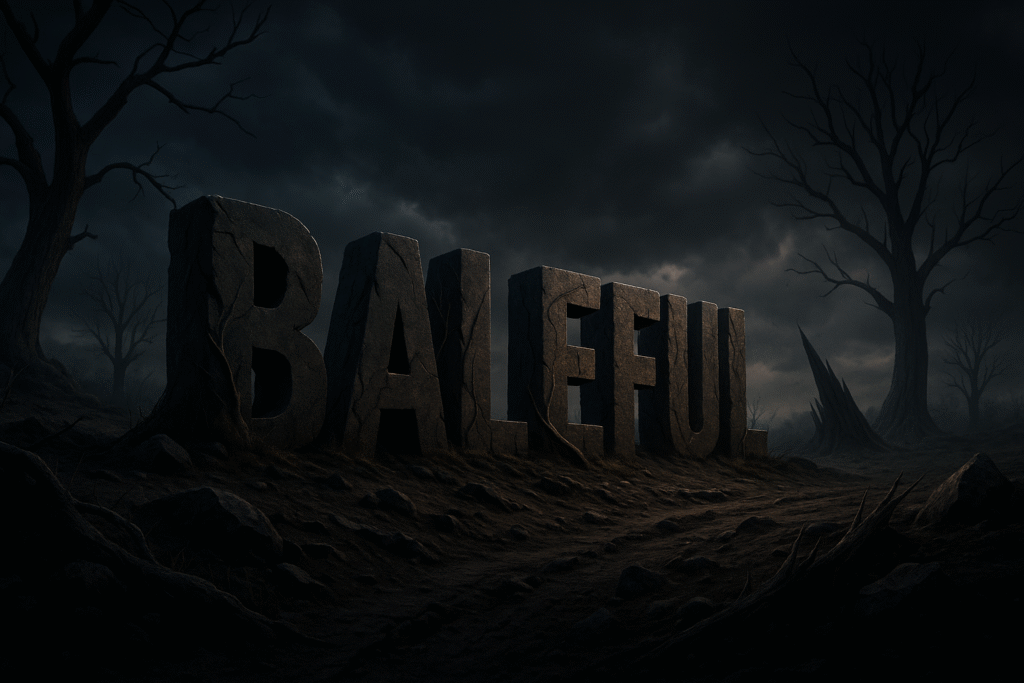
Today's Word Baleful BAYL-full Definition (adjective) Threatening harm or expressing hostility; ominous in tone or intent. Example The villain gave a baleful glare that silenced the entire room. Word Origin Old English bealufull, from bealu meaning “evil” or “harm.” Fun Fact Baleful shows up a lot in literature, especially when describing dark atmospheres or intense characters. It can describe looks, gestures, or environments that signal danger before it strikes. A baleful sky? Storm’s coming. A baleful glance? You’re on thin ice. It’s a great word for when something feels wrong—even if nothing’s happened yet.
Pedantic
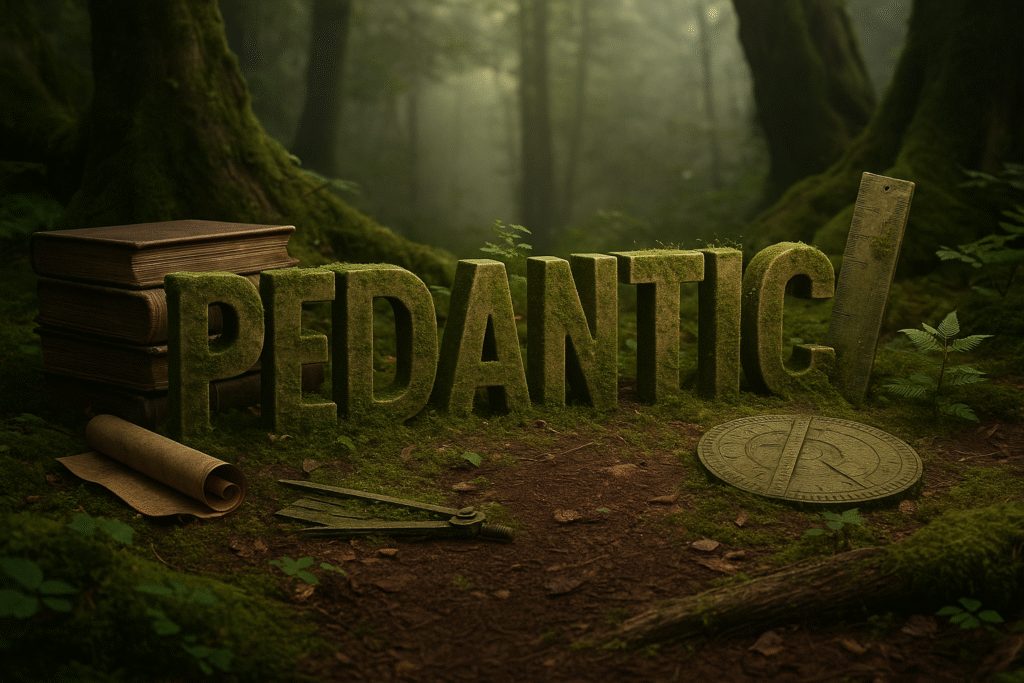
Today's Word Pedantic puh-DAN-tik Definition (adjective) Overly concerned with formal rules, details, or academic accuracy—especially in a way that feels nitpicky or condescending. Example His pedantic lecture about the placement of commas made the entire class groan. Word Origin Late 16th century: from French pédantique, from pédant (pedant), originally meaning “a schoolmaster or teacher.” Fun Fact Being pedantic isn’t just about knowing a lot—it’s about showing off what you know, often in a way that sucks the joy out of conversation. It’s commonly used to describe people who correct grammar mid-sentence, cite obscure facts to win debates, or derail discussions with unnecessary detail. While accuracy matters, pedantry often misses the point: connecting with others.
Unremitting
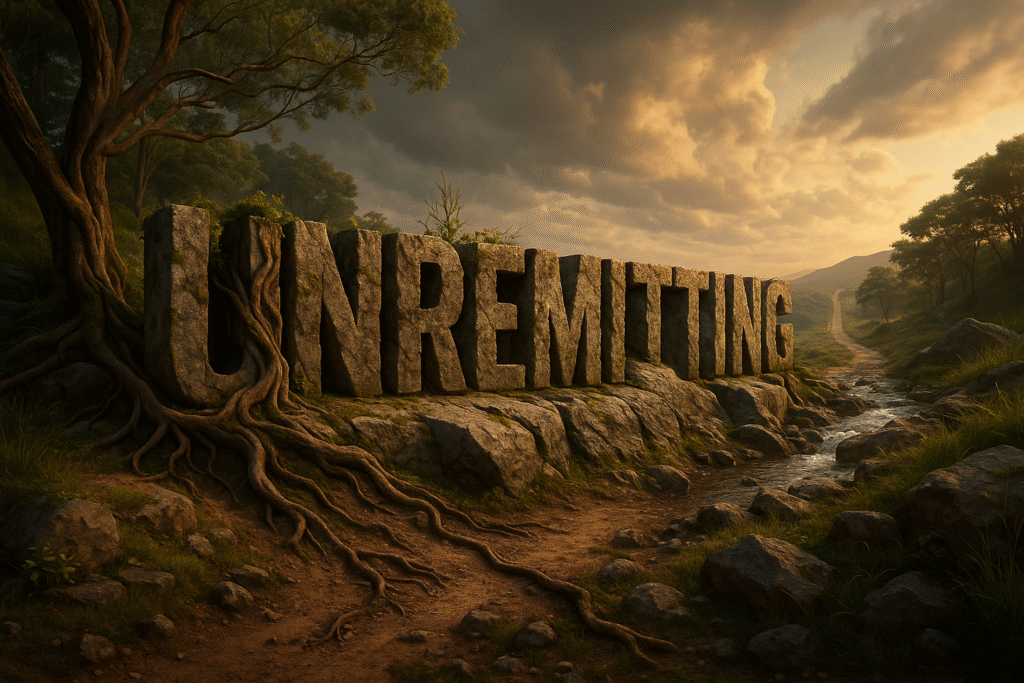
Today's Word Unremitting uhn-ruh-MITT-ing Definition (adjective) Never relaxing or slackening; constant and relentless. Example Their unremitting efforts finally paid off after years of quiet dedication. Word Origin Late 17th century: from Latin un- (not) + remittere meaning “to relax” or “send back.” Fun Fact Unremitting is often used to describe long-term endurance—whether it’s a positive grind (like hard work) or something oppressive (like stress or pain). You’ll see it in sports commentary, startup culture, or even weather reports (unremitting heat). It’s a favorite in storytelling when characters don’t quit—because they can’t afford to.
Castigate
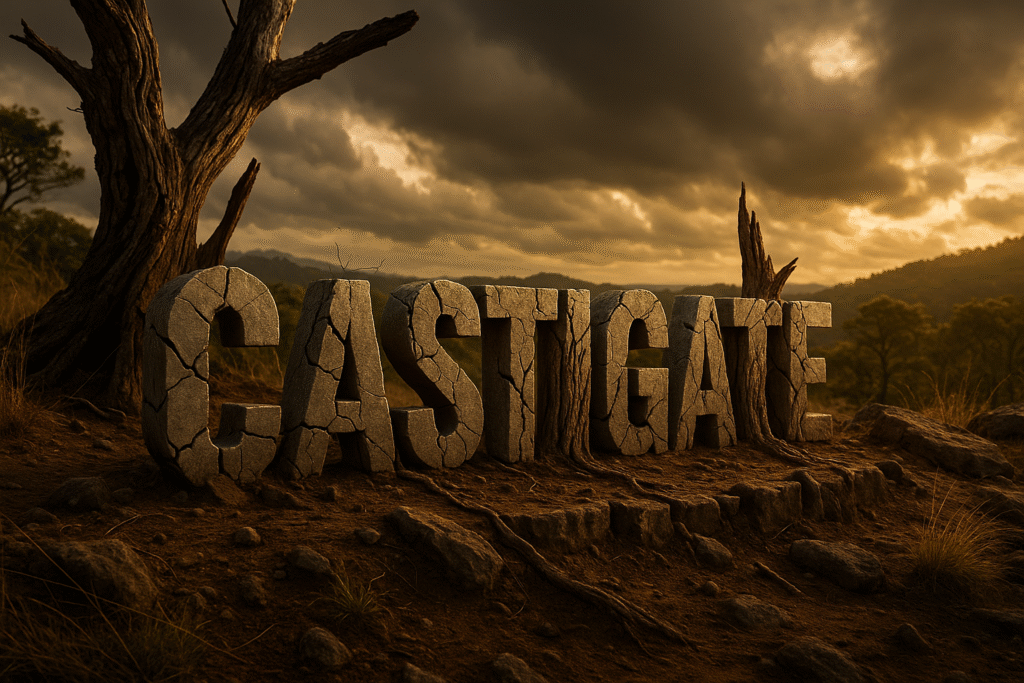
Today's Word Castigate KAS-tih-gayt Definition (verb) To reprimand someone severely; to criticize harshly. Example The editor castigated the writer for missing yet another deadline. Word Origin Early 17th century: from Latin castigare, from castus ‘pure’ + agere ‘to drive’. Fun Fact Castigate doesn’t just mean to critique—it means to come down hard, often with a tone of moral authority. In the past, it could even refer to physical punishment, but today it’s used more metaphorically: a boss tearing into an employee, a coach yelling during halftime, or a pundit scolding a public figure. It’s always loud, sharp, and meant to correct.
Glib

Today's Word Glib glib Definition (adjective) Fluent and confident in speech, but shallow, insincere, or lacking thought. Example His glib explanation sounded convincing, but it crumbled under basic questioning. Word Origin Mid 17th century: probably from Low German glibberig, meaning “slippery.” Fun Fact Glib is often used to describe people who are too quick with their words—especially when it feels rehearsed, dismissive, or disingenuous. Think of sales pitches that sound slick but empty, or politicians who talk around the truth with practiced ease. It’s not a compliment—glibness suggests style over substance, and the listener often walks away feeling talked at, not to.
Tawdry
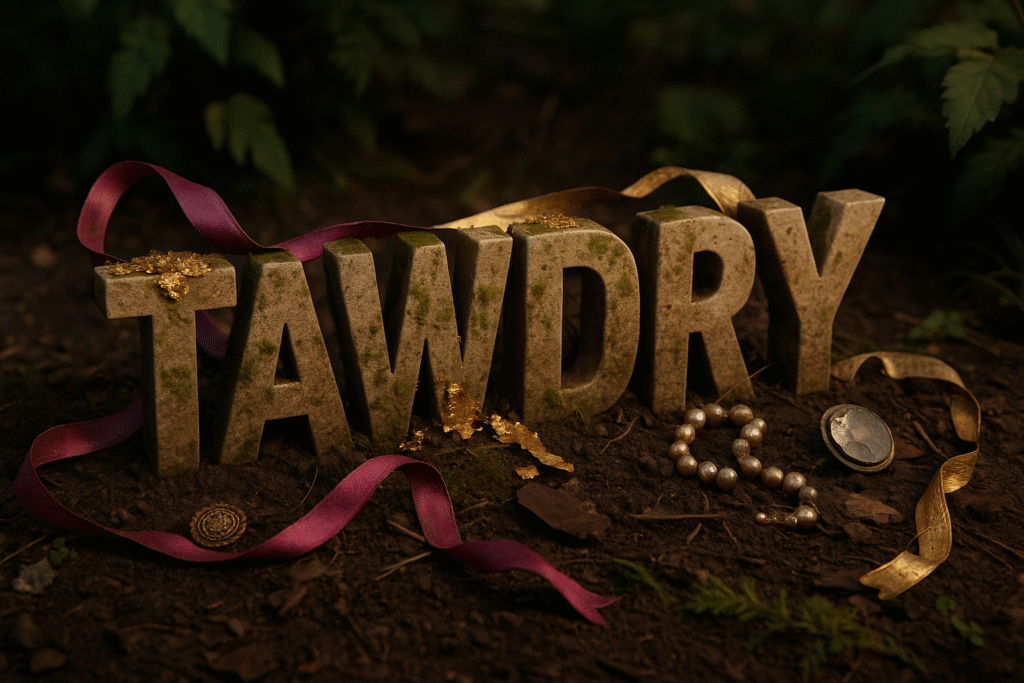
Today's Word Tawdry TAW-dree Definition (adjective) Showy but cheap and of poor quality; lacking good taste. Example The room was filled with tawdry decorations that looked like they came from a discount bin. Word Origin Mid 17th century: contraction of St. Audrey’s lace, which referred to cheap lace sold at fairs in honor of St. Audrey. Over time, the lace was seen as gaudy and tasteless, and St. Audrey became tawdry. Fun Fact The transformation from St. Audrey to tawdry is a classic case of how language evolves through cultural snobbery. Once a respected religious figure, St. Audrey lent her name to lace accessories sold at fairs. But as styles changed, those accessories were considered garish or outdated, and the word became an insult. Today, tawdry is used to describe anything that’s cheaply flashy, overly glitzy, or just in bad taste—from outfits to gossip.
Adulation
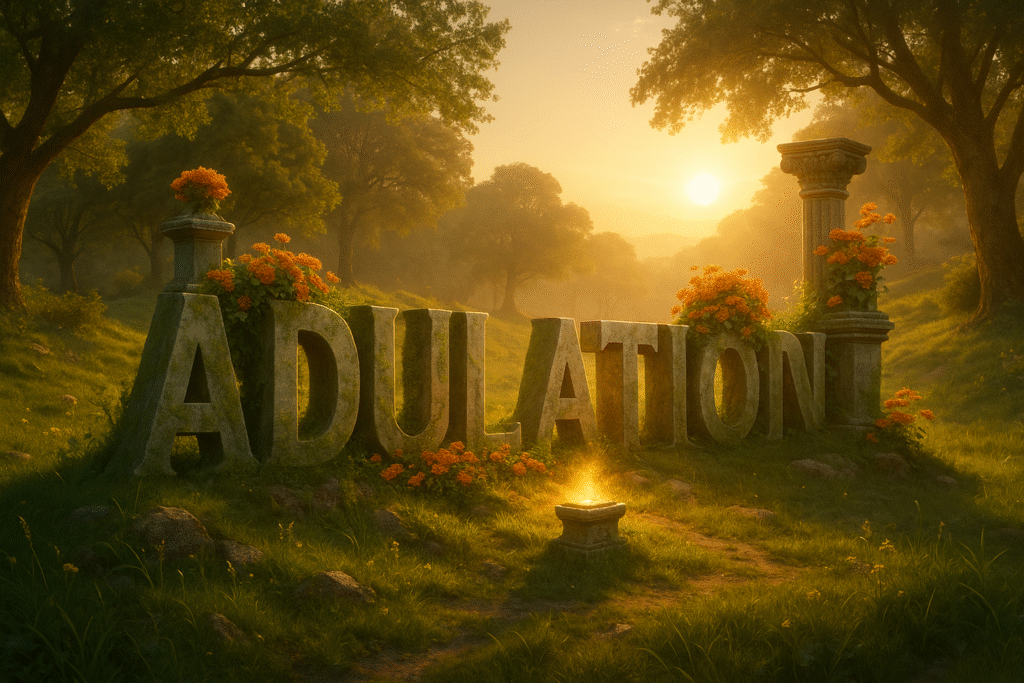
Today's Word Adulation aj-uh-LAY-shun Definition (noun) Excessive admiration or praise, often to the point of insincerity or obsession. Example The celebrity was showered with adulation, though some of it felt more like performance than sincerity. Word Origin Late Middle English: from Latin adulatio(n-), from adulari meaning “to fawn upon.” Fun Fact Adulation isn’t just praise — it’s over-the-top, sometimes cringe-worthy worship. While it can be genuine, it often implies that someone is going too far in their admiration, whether for a pop star, political figure, or social media influencer. It frequently appears in commentary about celebrity culture, cult followings, or fan behavior that blurs the line between loyalty and obsession.
Wend

Today's Word Wend wend Definition (verb) To travel in a slow, purposeful, or indirect way. Example They wended their way through the hills, stopping to take in every view. Word Origin Old English wendan, meaning “to turn” or “go,” originally used to describe physical and metaphorical journeys. Fun Fact Wend is one of those elegant, old-fashioned words that shows up in literature and poetic travel writing. It suggests more than just movement—it implies a journey that unfolds intentionally, even if slowly or circuitously. Though rarely used in speech today, you’ll still find it in books or historical dramas, giving a sense of timeless wandering—like “he wended his way through the mist.”
Dogmatic

Today's Word Dogmatic dawg-MAT-ik Definition (adjective) Asserting opinions or beliefs in an arrogant, rigid, and often unyielding way. Example His dogmatic approach left no room for compromise or alternative ideas. Word Origin Mid 17th century: from late Latin dogmaticus, from Greek dogmatikos, from dogma ‘opinion, tenet’. Fun Fact Dogmatic is often used in politics, academia, or religion—anywhere someone clings to a belief system so tightly that opposing views are dismissed outright. It doesn’t necessarily mean the belief is wrong—just that it’s inflexibly held. In leadership or conversation, being called dogmatic is rarely a compliment; it suggests stubborn conviction without curiosity or tolerance.
Relegate

Today's Word Relegate REL-uh-gayt Definition (verb) To assign someone or something to a lower position, status, or role—often as a form of dismissal or reduction in importance. Example After the scandal, the senator was relegated to a minor committee post. Word Origin Late Middle English: from Latin relegare, meaning “to send away,” from re- ‘again’ + legare ‘to send’. Fun Fact In sports leagues (especially in the UK), relegate has a specific and painful meaning: being bumped down to a lower division. But the word is also used in work, politics, and culture—when something is deemed less important or is subtly sidelined. You might relegate an annoying task to the bottom of your to-do list… or a brilliant idea could be wrongly relegated to “not now” status. It’s a powerful word for passive dismissal.
